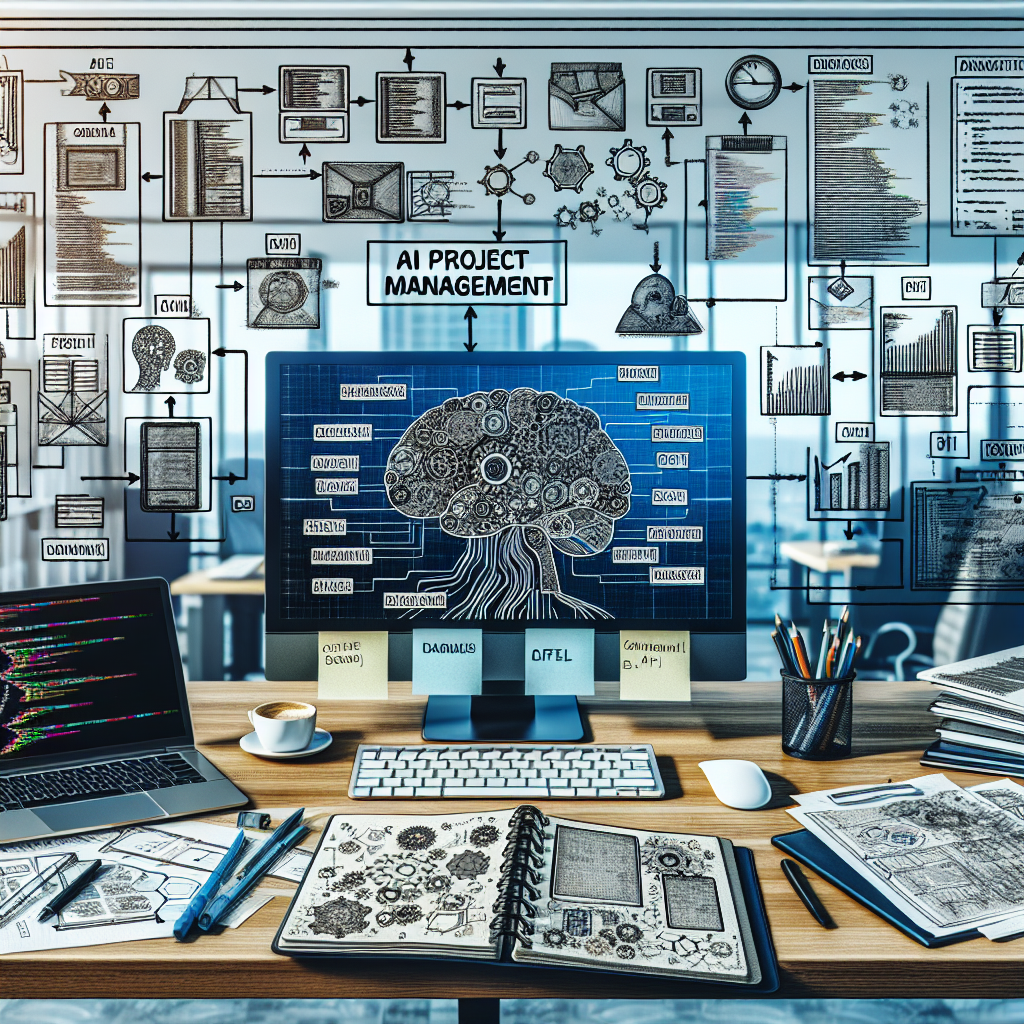AI Project Management: Addressing Project Complexity and Uncertainty
In today’s fast-paced and ever-evolving business environment, project management has become increasingly complex due to factors such as globalization, technological advancements, and dynamic market conditions. As a result, traditional project management approaches may no longer be sufficient to effectively address the challenges posed by these factors.
Artificial Intelligence (AI) has emerged as a powerful tool that can help project managers navigate the complexities and uncertainties inherent in modern projects. By leveraging AI technologies, project managers can improve decision-making, optimize resource allocation, and enhance project outcomes.
Addressing Project Complexity with AI
One of the key ways in which AI can help project managers address project complexity is through the use of predictive analytics. Predictive analytics involves using historical data, statistical algorithms, and machine learning techniques to forecast future outcomes. By analyzing past project data, AI algorithms can identify patterns and trends that can help project managers make more informed decisions.
For example, AI can be used to predict project risks and identify potential roadblocks before they occur. By analyzing historical project data, AI algorithms can assess the likelihood of certain risks occurring and provide recommendations for mitigating them. This proactive approach to risk management can help project managers avoid costly delays and disruptions.
AI can also help project managers optimize resource allocation by providing insights into how resources are being utilized and where adjustments can be made. By analyzing data on resource usage, AI algorithms can identify inefficiencies and suggest ways to reallocate resources for maximum efficiency. This can help project managers ensure that resources are being used effectively and that project objectives are being met on time and within budget.
In addition, AI can assist project managers in monitoring project progress and performance in real-time. By analyzing real-time data on project metrics such as budget, timeline, and scope, AI algorithms can provide project managers with up-to-date insights into project status. This real-time monitoring can help project managers identify issues early on and take corrective action before they escalate into larger problems.
Uncertainty in Project Management
Uncertainty is an inherent part of project management, as projects are by nature complex and dynamic. Uncertainty can arise from factors such as changing market conditions, unforeseen risks, and evolving customer requirements. Traditional project management approaches may struggle to effectively address uncertainty, as they are often based on fixed plans and rigid processes.
AI can help project managers navigate uncertainty by providing them with tools and techniques to adapt to changing conditions. For example, AI can be used to conduct scenario analysis, where different scenarios are modeled based on varying assumptions and inputs. By simulating different scenarios, project managers can assess the potential impact of different factors on project outcomes and develop contingency plans to mitigate risks.
AI can also help project managers make more informed decisions in the face of uncertainty by providing them with predictive insights. By analyzing data on project performance, market trends, and other factors, AI algorithms can forecast potential outcomes and recommend actions to achieve desired results. This predictive capability can help project managers anticipate challenges and opportunities and make strategic decisions to drive project success.
Frequently Asked Questions (FAQs)
Q: How can AI improve project management efficiency?
A: AI can improve project management efficiency by automating repetitive tasks, providing real-time insights into project performance, and optimizing resource allocation. By streamlining processes and providing data-driven recommendations, AI can help project managers make informed decisions and drive project success.
Q: What are some common AI tools used in project management?
A: Some common AI tools used in project management include predictive analytics, machine learning algorithms, natural language processing, and robotic process automation. These tools can help project managers analyze data, identify patterns, and automate tasks to improve project outcomes.
Q: How can project managers leverage AI to address project risks?
A: Project managers can leverage AI to address project risks by conducting risk analysis, identifying potential risks, and developing mitigation strategies. By using predictive analytics and scenario analysis, project managers can anticipate risks and take proactive measures to mitigate their impact on project outcomes.
Q: What are some key considerations when implementing AI in project management?
A: Some key considerations when implementing AI in project management include data quality, algorithm selection, and change management. It is important to ensure that the data used in AI algorithms is accurate and reliable, to choose the right algorithms for the specific project needs, and to manage the organizational change associated with adopting AI technologies.
In conclusion, AI has the potential to revolutionize project management by helping project managers address the complexities and uncertainties inherent in modern projects. By leveraging AI technologies, project managers can improve decision-making, optimize resource allocation, and enhance project outcomes. With the right tools and techniques, project managers can harness the power of AI to drive project success in today’s fast-paced and dynamic business environment.

